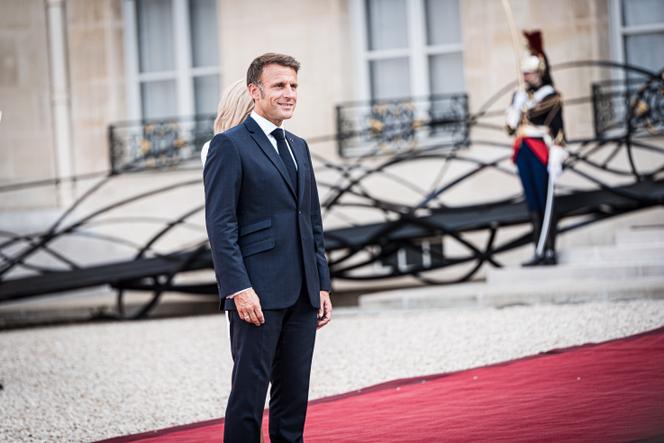


Emmanuel Macron is hesitating. As he puts it, he's "chewing over" the options open to him. The French president tests one option, pretends to abandon another, goes back to square one, etc. On Tuesday, September 3, the day after the start of the new school year and almost 60 days after the second round of France's parliamentary elections, the president had still not made up his mind on who to appoint as prime minister, content to leave the country in the hands of a caretaker government that resigned on July 16.
One by one, the candidates pass through the "funnel" test, as sources at the Elysée rather inelegantly call it. While, for a few hours, Thierry Beaudet, president of the Economic, Social and Environmental Council (CESE), may have believed he was being promoted to prime minister, he was no longer cited at the presidency by Monday evening. "No sooner had his name been [put forward] than it was torn to shreds by the left and the right," observed François Patriat, leader of the Macron-aligned senators. While Beaudet was seen as a "technical" option, now, "the only solution is political," asserted a person close to the head of state.
If the Elysée is to be believed, the final duel is playing out between Xavier Bertrand, the president of a northern French region and a member of the right-wing Les Républicains (LR) party, and Bernard Cazeneuve, a former member of the Parti Socialiste (PS, left) who served as prime minister under Macron's predecessor, François Hollande. Both met with Macron on Monday, during a day of intense consultations in which the president met with his predecessors, Hollande from the left and Nicolas Sarkozy from the right. Yet nothing was decided.
On Tuesday, the president continued his talks behind the scenes, by telephone, sounding out leaders of LR and the Socialists. He continued with a phone call turned down by radical left-wing La France Insoumise (LFI) party leaders, and another one, accepted this time, with Greens leaders. Finally, he ended on a discussion with the leader of the far-right MPs, Marine Le Pen.
Recalling his role as guarantor of the institutions, Macron sought to find out, over the course of his exchanges, whether the future prime minister would be toppled, from the moment they were appointed, by a motion of no confidence adopted by a majority of the 577 members of the Assemblée Nationale. "The president favors stability over speed," argued a source in the entourage of the outgoing prime minister, Gabriel Attal, to excuse the slowness of the president's decision-making. "The king is having fun," criticized political scientist Vincent Martigny, describing Macron as "the master of broken clocks."
You have 59.18% of this article left to read. The rest is for subscribers only.
